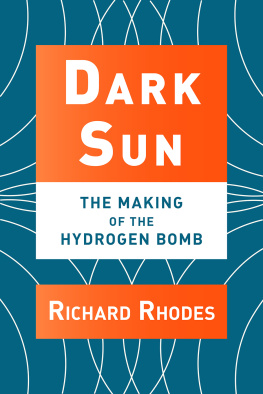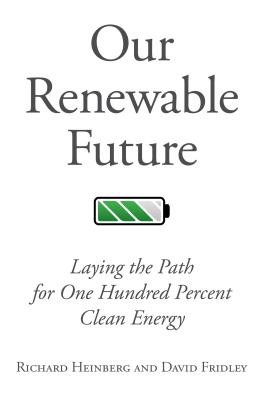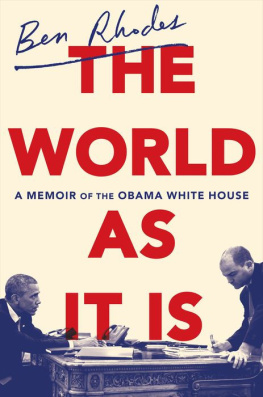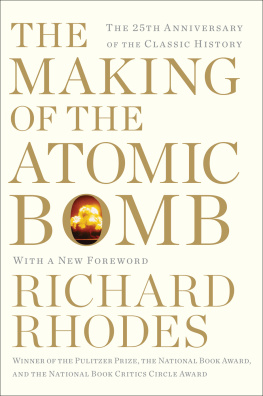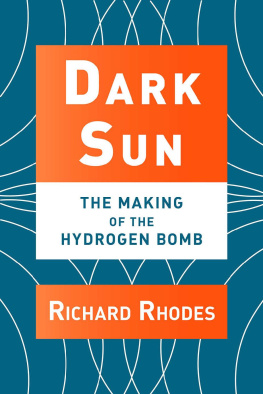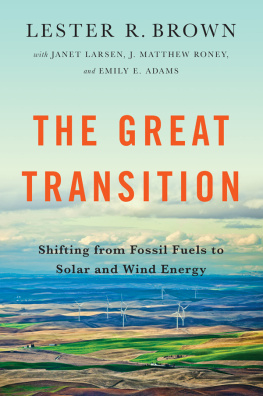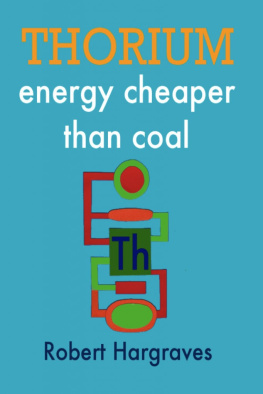Thank you for downloading this Simon & Schuster ebook.
Get a FREE ebook when you join our mailing list. Plus, get updates on new releases, deals, recommended reads, and more from Simon & Schuster. Click below to sign up and see terms and conditions.
CLICK HERE TO SIGN UP
Already a subscriber? Provide your email again so we can register this ebook and send you more of what you like to read. You will continue to receive exclusive offers in your inbox.
We hope you enjoyed reading this Simon & Schuster ebook.
Get a FREE ebook when you join our mailing list. Plus, get updates on new releases, deals, recommended reads, and more from Simon & Schuster. Click below to sign up and see terms and conditions.
CLICK HERE TO SIGN UP
Already a subscriber? Provide your email again so we can register this ebook and send you more of what you like to read. You will continue to receive exclusive offers in your inbox.
ALSO BY RICHARD RHODES
Hedys Folly
The Twilight of the Bombs
Arsenals of Folly
John James Audubon
Masters of Death
Why They Kill
Visions of Technology
Deadly Feasts
How to Write
Dark Sun
Nuclear Renewal
Making Love
A Hole in the World
Farm
The Making of the Atomic Bomb
Sons of Earth
The Last Safari
Looking for America
Holy Secrets
The Ozarks
The Ungodly
The Inland Ground

Simon & Schuster
1230 Avenue of the Americas
New York, NY 10020
www.SimonandSchuster.com
Copyright 2018 by Richard Rhodes
All rights reserved, including the right to reproduce this book or portions thereof in any form whatsoever. For information, address Simon & Schuster Subsidiary Rights Department, 1230 Avenue of the Americas, New York, NY 10020.
First Simon & Schuster hardcover edition May 2018
SIMON & SCHUSTER and colophon are registered trademarks of Simon & Schuster, Inc.
For information about special discounts for bulk purchases, please contact Simon & Schuster Special Sales at 1-866-506-1949 or .
The Simon & Schuster Speakers Bureau can bring authors to your live event. For more information or to book an event, contact the Simon & Schuster Speakers Bureau at 1-866-248-3049 or visit our website at www.simonspeakers.com.
Interior design by Ruth Lee-Mui
Jacket design by Evan Gaffney
Jacket pa int ing by Ignace Francois Bonhomme Photo Akg- Images
Library of Congress Cataloging-in-Publication Data is available.
ISBN 978-1-5011-0535-7
ISBN 978-1-5011-0537-1 (ebook)
For Isaac Rhodes
CONTENTS
A grant from the Alfred P. Sloan Foundation supported the research and writing of this book.
FOREWORD
Y oure about to embark on a four-hundred-year journey with some of the most interesting and creative people who ever lived. Since theyre scientists and inventors and engineers, their names dont always attach to their work. But they shaped the world we live in, for better and for worse. Mostly for the better, I believe. After you travel with them, I think you will too. At least youll know more about what they did and why and how they did it. I was surprised and sometimes amazed at how many of their stories have been forgotten. Some of the references I use to tell those stories were histories and biographies that date back two hundred years or more. The books and documents are old, but the stories are new.
Who are these paragons? One writer at least: William Shakespeare, not as playwright but as part-owner of the Theatre, the first in London. He and his partners dismantled it (the landowner claimed they stole it) for the wood in a time when wood had become scarce around London. They carted it across the Thames River to build the larger Globe Theatre in naughty Southwark, next door to a bear-baiting arena.
A Frenchman, Denis Papin, concerned with feeding the poor, whose invention of the pressure cooker prepared the way for the steam engine.
James Watt, of course, the Scotsman who gave us the steam engine itself, but also Thomas Newcomen before him, whose great galumphing atmospheric steam machine preceded Watts elegant elaboration.
I visited a replica Newcomen engine in England on one of the few days a year when its keepers fire it up. It was the size of a house and a champion coal hog. (Coal isnt cheap anymore, which is why they seldom fire it up.) I shoveled a scoopful of coal into the firebox and talked with the retired engineer who ran it. I asked him what equipment he needed to keep it running, and, with a chuckle, he hefted a big hammer. The Newcomen was all pipes and cranks and often out of whack, so he whacked it.
Newcomens squatted at the pitheadthe surface opening into a mineand pumped water out. They were too inefficient to be made portable. Watts more efficient engine could be smallersmall enough to mount on wheels and rails to haul the coal from the pithead to the river in order to be barged down to London. Then someone realized you could haul people as well as coal, and the passenger railroad emerged and quickly branched out all over England. America too, but our engines burned wood through most of the nineteenth century, penetrating the wilderness far from any coal mine and then connecting the continent.
Among twentieth-century paragons, theres Arie Haagen-Smit, a Dutch specialist in essences who was teaching at the California Institute of Technology (Caltech), in Pasadena. One day in 1948, concerned government officials found him in a laboratory full of ripe pineapples, condensing their tropical aroma from the air. They asked him to do the same for the ghastly Los Angeles smog. He cleared out the pineapples, opened a window, and sucked in thousands of cubic feet of smoggy air. He ran the air through a filter chilled with liquid nitrogen, and scraped up a few drops of brown, smelly gunk. After hed analyzed the gunk chemically, he announced it was automobile exhaust and the exhaust of nearby refineries. Unlike the old and often deadly smoke and fog (smoke + fog = smog) that blighted cities where coal was burned, this new stuff compounded in the air like a binary poison gas. Catalyzed by sunlight, it turned the air sepia.
Oil companies didnt want to know that. Their chemists scoffed at Haagen-Smits analysis. They found no such reaction, they told the world. Which fueled the stubborn Dutchmans anger. Back to the lab. He showed that the oil company chemists fancy equipment couldnt distinguish the smog-forming process. For his part, Haagen-Smit used strips of old inner tube to measure how much smog ozone embrittled rubber and his pineapple-analyzing gear to sniff out the components that combined to blight the air. Government stepped in then and began the process of cleaning up Los Angeles.
This book is full of such stories. Its more than merely stories, however. Its serious purpose is to explore the history of energy; to cast light on the choices were confronting today because of the challenge of global climate change. People in the energy business think we take energy for granted. They say we care about it only at the pump or the outlet in the wall. That may have been true once. It certainly isnt true today. Climate change is a major political issue. Most of us are aware of itincreasingly soand worried about it. Businesses are challenged by it. It looms over civilization with much the same gloom of doomsday menace as did fear of nuclear annihilation in the long years of the Cold War.
Many feel excluded from the discussion, however. The literature of climate change is mostly technical; the debate, esoteric. Its focused on present conditions, with little reference to the human pastto centuries of hard-won human experience. Yet todays challenges are the legacies of historic transitions. Wood gave way to coal, and coal made room for oil, as coal and oil are now making room for natural gas, nuclear power, and renewables. Prime movers (systems that convert energy to motion) transitioned from animal and water power to the steam engine, the internal combustion engine, the generator, and the electric motor. We learned from such challenges, mastered their transitions, capitalized on their opportunities.
Next page



